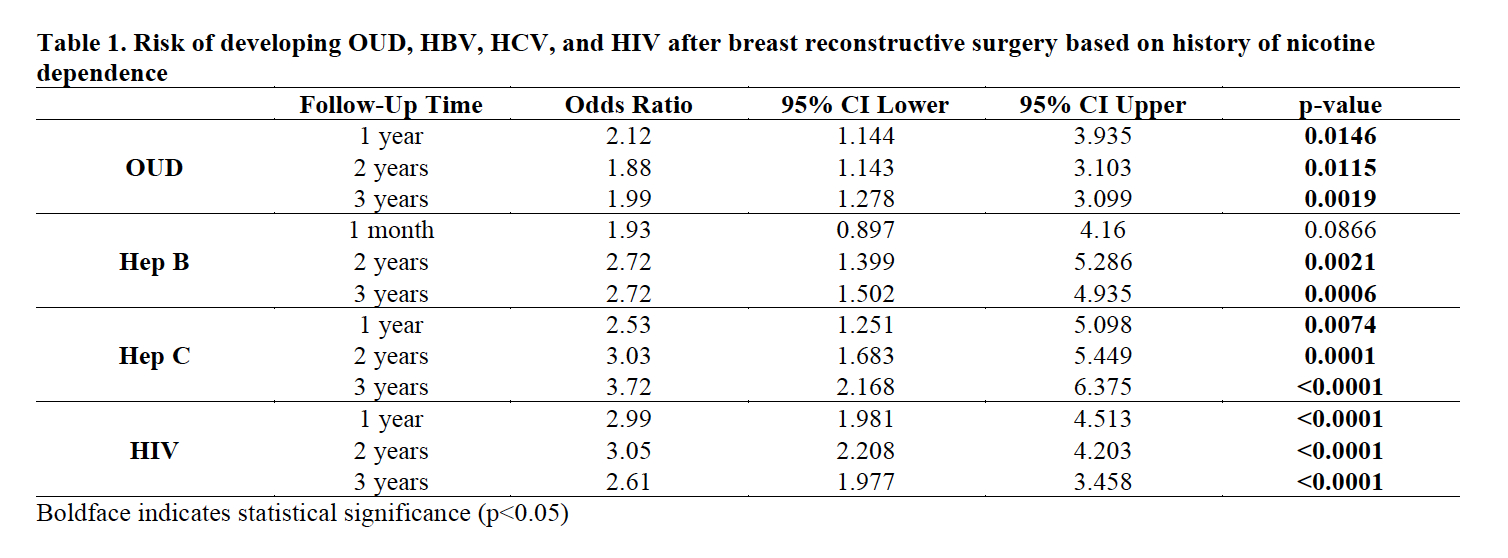Development of Opioid Use Disorder Following Breast Reconstructive Surgery: Effects of Nicotine Dependence
Destin Groff*1, Zachary Freedman1, Ambroise Gilles2, Curtis Bone3, Timothy S. Johnson2
1Pennsylvania State College of Medicine, Hershey, PA; 2Pennsylvania State Hershey Medical Center, Hershey, PA; 3Family and Community Medicine, UPMC, Pittsburgh, PA
After undergoing breast reconstructive surgery, patients are typically prescribed opioids. Smoking tobacco increases rate of opioid metabolism and is associated with development of opioid use disorder (OUD). The aim of this study is to determine whether patients with a history of smoking have an increased risk of OUD and associated diseases following breast reconstructive surgery.
A retrospective analysis was conducted using TriNetX, a multi-institutional de-identified database. Individuals included underwent a breast reconstructive surgery and received postoperative opioid treatment. The exposed group included patients with nicotine dependence. The control group had no nicotine dependence. Risk of developing opioid use disorder (OUD), hepatitis B virus (HBV), hepatitis C virus (HCV), and human immunodeficiency virus (HIV) from 12 to 36 months after surgery was compared between groups. Cohorts were matched to control for confounding factors including age, sex, race, and mental health history.
There were 8,648 patients included in the analysis. After matching, 4,324 patients comprised the nicotine dependence group and 4,324 patients remained in the non-nicotine dependence group. Nicotine dependence was significantly associated with increased risk of OUD at 12, 24 and 36 months after breast reconstruction (36mo: OR 1.99; CI 1.278-3.099). Nicotine dependence was also associated with increased risk of HIV and HCV at all time points after surgery (36mo HIV: OR 2.614; CI 1.977,3.458; 36mo HCV: OR 3.718; CI 2.268-6.375) and increased risk of HBV beginning at 24 months after surgery (36mo HBV: OR 2.722; CI 1.502-4.935).
Individuals with nicotine dependence may be at increased risk of developing OUD, HIV, HCV and HBV following breast reconstructive surgery. This risk persists for at least 3 years after surgery. Additional research and clinical interventions focusing on early identification of OUD, prevention efforts, and harm reduction strategies for patients with nicotine dependence undergoing breast reconstruction is warranted.
Back to 2023 Abstracts


